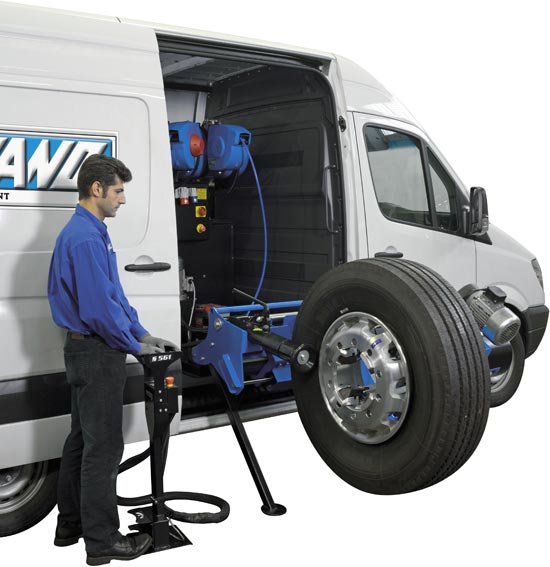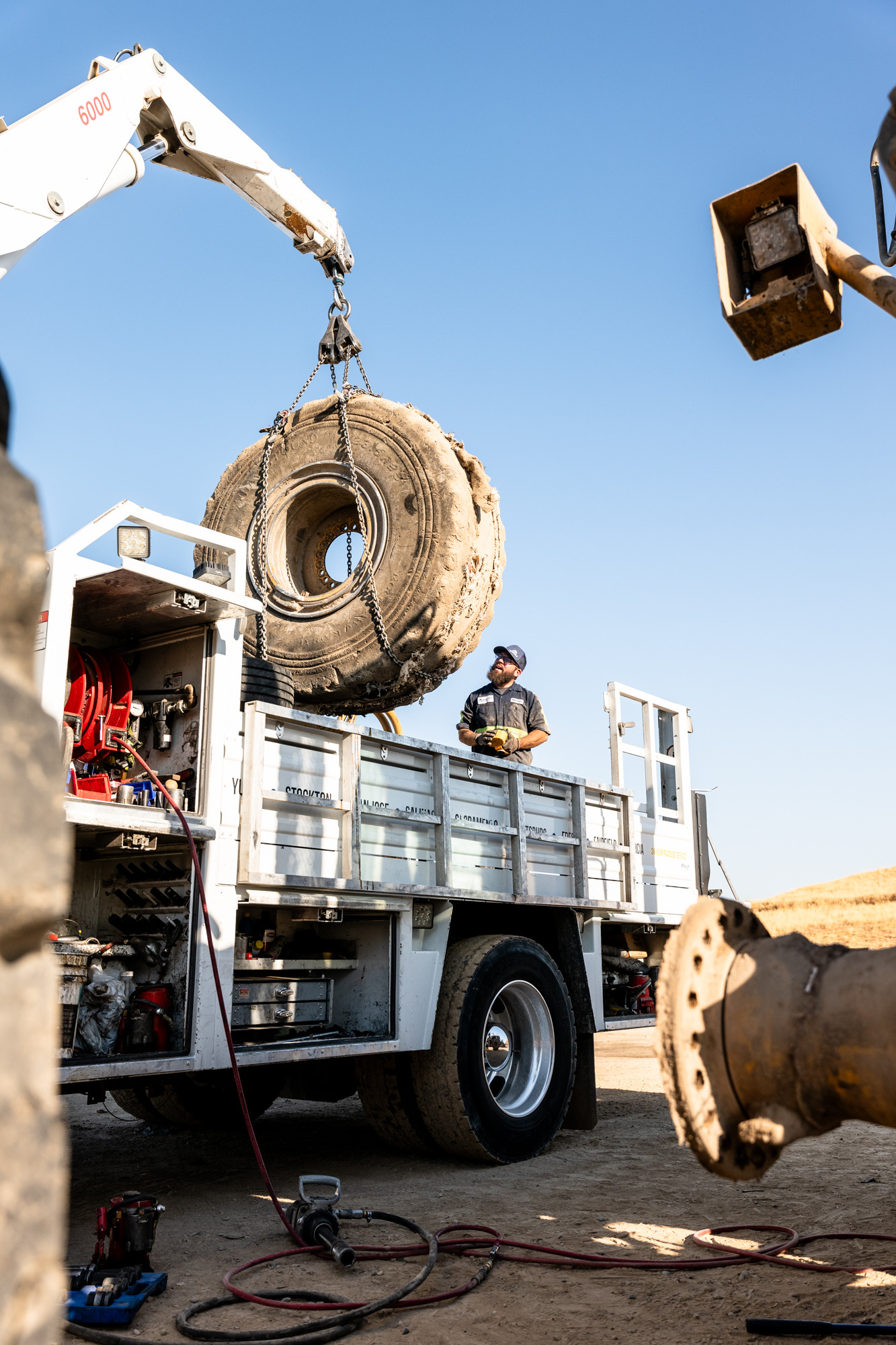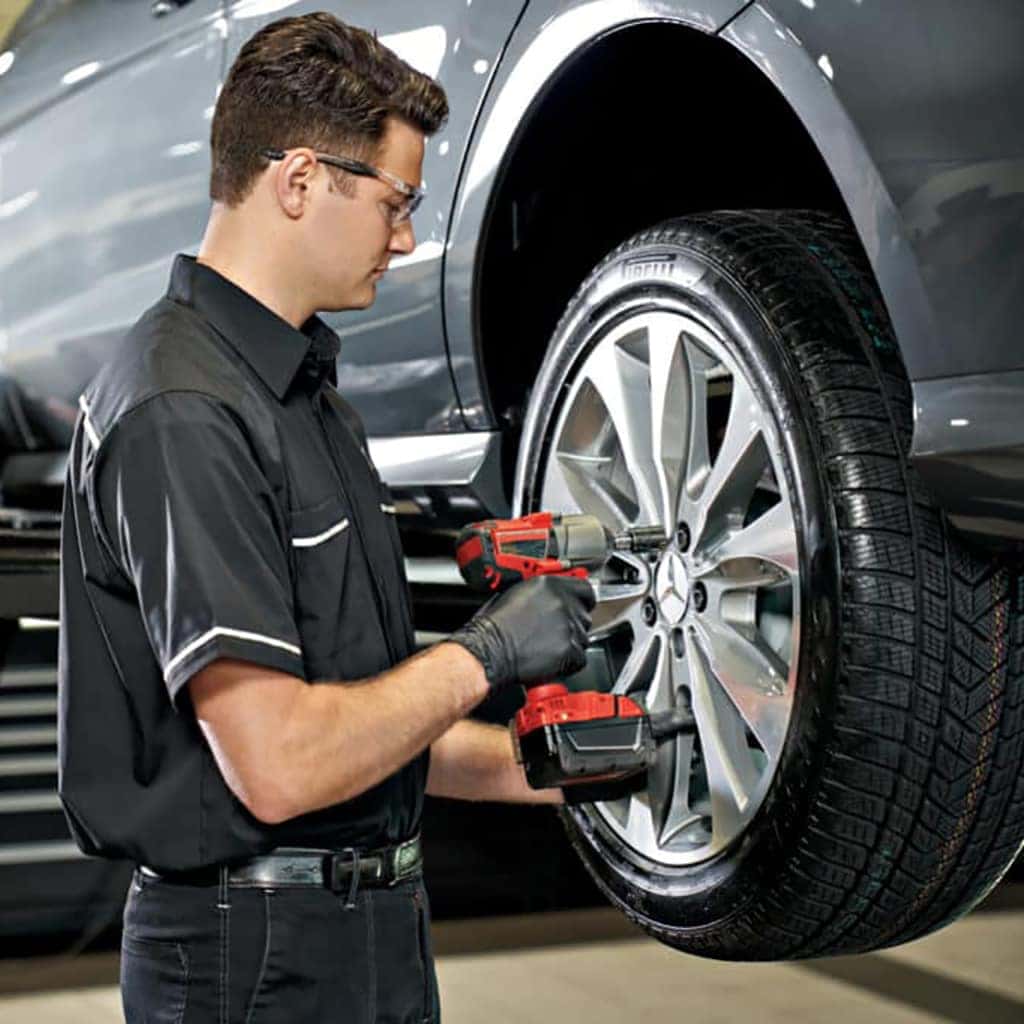Drive with Confidence: GMC Tires Service at Morris Tires
Wiki Article
Tire Service: The Effect of Weather Conditions
When it comes to ensuring optimum efficiency and security on the road, comprehending the impact of climate problems on tire solution is essential. GMC Tire Service. In this conversation, we will discover the elaborate partnership in between climate problems and tire solution, losing light on the significance of weather-specific tire upkeep techniques and considerations.Heat and Tire Performance
When subjected to heats, tires experience changes in performance that can dramatically impact lorry safety and security and handling. The heat created from long term driving or warm climate problems causes the tire rubber to soften, causing reduced tread life and raised wear. As the rubber becomes softer, the tire's grip on the roadway diminishes, affecting braking distances and overall grip. In extreme cases, extreme warmth can also trigger tire blowouts, positioning an extreme safety and security threat to the automobile and its residents.
Winter Results
Winter problems can have a significant effect on tire efficiency and security. As temperatures drop, tire rubber can harden, leading to lowered traction on icy or snow-covered roadways. In winter, tires might additionally lose atmospheric pressure much more rapidly, which can influence handling and fuel efficiency. In addition, cold temperature levels can create tire sidewalls to tense, increasing the risk of damage from gaps or other road risks.To reduce the effects of cold weather condition on tires, it is critical to frequently examine tire stress and inflate them to the supplier's recommended degrees. Making use of wintertime or all-season tires made for winter problems can also enhance traction and grasp on icy or snowy roads. Appropriate tire upkeep, including normal examinations for wear and damage, becomes a lot more essential during colder months to guarantee ideal performance and security.
Rainy Issues Impact
During rainy conditions, tire performance and security can be dramatically affected by the wet roadway surfaces and reduced presence. The step pattern of tires plays an essential role in keeping traction on wet roadways. Tires with damaged treads are a lot more susceptible to hydroplaning, where a layer of water develops in between the tire and the road surface, bring about loss of grip. To combat this, chauffeurs need to frequently check their tires for sufficient walk deepness and take into consideration buying tires particularly developed for damp conditions.Furthermore, rainy climate can likewise decrease presence, making it testing for motorists to see the road in advance clearly (GMC Tire Service). In such problems, it is crucial to readjust driving rates as necessary and preserve a secure adhering to distance to permit abrupt stops. Effectively inflated tires can additionally assist in keeping control on damp roads by giving far better handling and grasp
Snow and Tire Security
Snow-covered roads position special obstacles for motorists, highlighting the value of appropriate tire choice and maintenance. When driving in snowy problems, having the ideal tires can make a considerable difference in security and efficiency. Winter tires are designed with special rubber compounds and tread patterns to provide much better grip on snow and ice contrasted to all-season tires. The much deeper footsteps and sipes of winter season tires help grip the roadway better, lowering the danger of moving and sliding.
It is important to comply with maker instructions when mounting and using tire chains to prevent damages to the tires and vehicle. By selecting the right tires, maintaining correct rising cost of living, and taking into consideration extra traction aids like tire chains, chauffeurs can improve their security morris tires when browsing snow-covered roadways.
Weather-Related Tire Upkeep
When encountered with various climate condition, correct tire upkeep comes to be a critical facet of car security and performance. Weather-related tire maintenance incorporates a variety of methods targeted at ensuring ideal tire feature and durability in various weather scenarios. One essential element of weather-related tire upkeep is tire stress law. Changing temperature levels can create tire pressure to vary, affecting traction and fuel performance. Routinely inspecting and adjusting tire stress according to maker referrals is vital for safe driving in transforming weather. In addition, tire tread depth plays a substantial duty in handling various weather condition elements. Tires with sufficient walk deepness give far better hold on damp or icy roads, minimizing the threat of skidding or hydroplaning. When step wear gets to a specific deepness is crucial for maintaining traction and stability in unfavorable weather condition, checking tire step routinely and replacing tires. By prioritizing weather-related tire upkeep, drivers can boost security, enhance car performance, and prolong the life expectancy of their tires.
Conclusion
Finally, climate problems have a substantial effect on tire performance and safety and security. From heat affecting tire stress and wear to winter reducing traction, it is important to take into consideration the weather when keeping and using tires. Stormy problems can decrease hold and result in hydroplaning, while snow can boost the threat of accidents if tires are not appropriately outfitted. Weather-related tire maintenance is essential in making sure ideal efficiency and safety and security when driving.In this conversation, we will discover the complex relationship between climate problems and tire service, shedding light on the value of weather-specific tire upkeep practices and considerations.

Report this wiki page